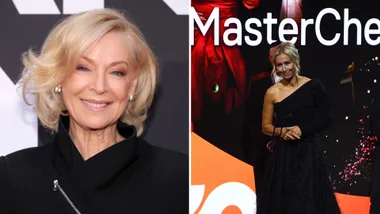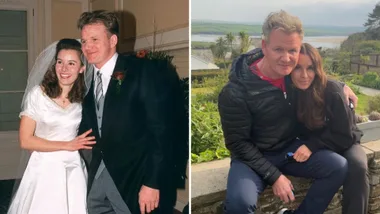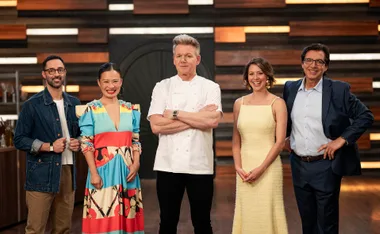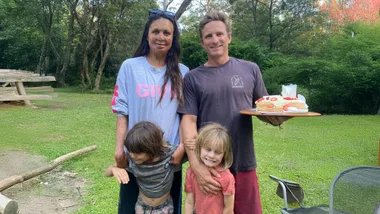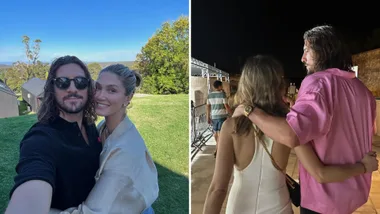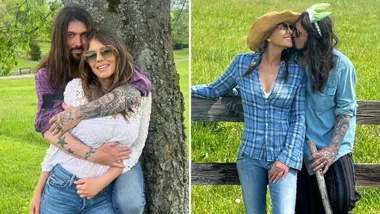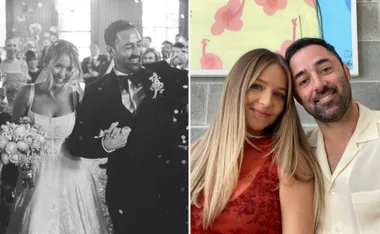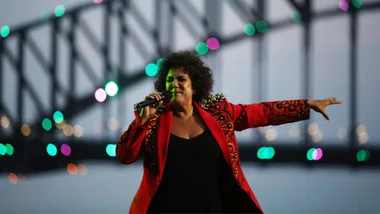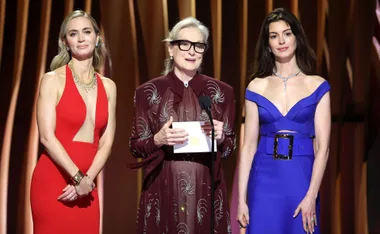When Kerryn Phelps and Jackie Stricker stood on the steps of New York’s City Hall last month to legally wed after 14 years of being married in all but name, they had their daughters by their side. This was the moment they had longed for, as they tell Juliet Rieden
“It was fantastic, wasn’t it, Jac! I almost couldn’t believe that we were standing there in front of the New York City clerk [Mike McSweeney, who decided to take the ceremony personally], who started this really very beautiful, moving ceremony. The words were lovely and then at the end he said, ‘By the power vested in me by the state of New York, I now pronounce you married’.”
Related: My gay child changed my world
There’s a pause as Kerryn Phelps lets the phrase wash over her all over again and I can hear a frisson of excitement in her voice.
“I actually became a little overwhelmed by the personal emotion of the event,” she says. “It just reminded me of why we have fought so hard for this for so long.”
Did she cry? “I did. We all had a bit of a sob,” she says, with a throaty laugh.
Professor Kerryn Phelps is not prone to outbursts of emotion. She’s the calm, analytical GP at the top of her profession, who loves to lobby politicians with precise, reasoned argument and weigh in to the political jousting arena on matters she feels deserve her passion.
“Jackie’s better at talking about feelings,” she says. Yet speaking to The Weekly the day after she legally married long-term partner and the love of her life, Jackie Stricker, Kerryn is clearly overcome.
Marriage had been part of Jackie’s life plan since she was a little girl, but as a gay woman, it was also something she assumed she couldn’t have.
“I grew up thinking, ‘I can’t get married’. And my mother, when she was alive, was really upset when I told her I was gay because she thought that it meant I couldn’t get married and I couldn’t have children. Well, that’s all been turned on its head now.
“I wanted a fairytale, just like all my friends had. I didn’t think it was fair or reasonable that I couldn’t get married just like them,” she says.
The wedding was a truly joyous occasion, but back in Australia, the couple had lit a very different fire.
“The furore in the Australian media when they found out what we’d done — Kerryn was reasonably well-known because of her media career — was just incredible,” Jackie remembers.
“It was like a bomb exploding. ‘What do you mean you’re getting married? You can’t get married! How dare you use the word marriage.’ The vitriol that came out was staggering.”
Kerryn was equally blindsided by the public reaction. “We certainly didn’t intend to set off a national movement. What we did at the time was just a very private and personal ceremony of our own, a recognition of our own.”
Related: When the other woman is a man
The repercussions were extreme for the couple and those around them. Jackie, who was then working as a teacher at a private Sydney girls’ school, was openly criticised and felt she had to quit her job. Kerryn lost her position as a medical columnist in a Sydney newspaper.
“Looking back now, I think it was necessary to have the difficult time that we went through in order to understand that there were a lot of people going through a far more difficult time with their sexuality,” says Kerryn.
“Up until then, I don’t think either of us had really completely experienced the homophobia and discrimination others encountered in their careers and families.”
Read more of this story in the November issue of The Australian Women’s Weekly.
Your say: Do you think Australia should legalise gay marriage?

Video: MPs asked to vote on same-sex civil unions

